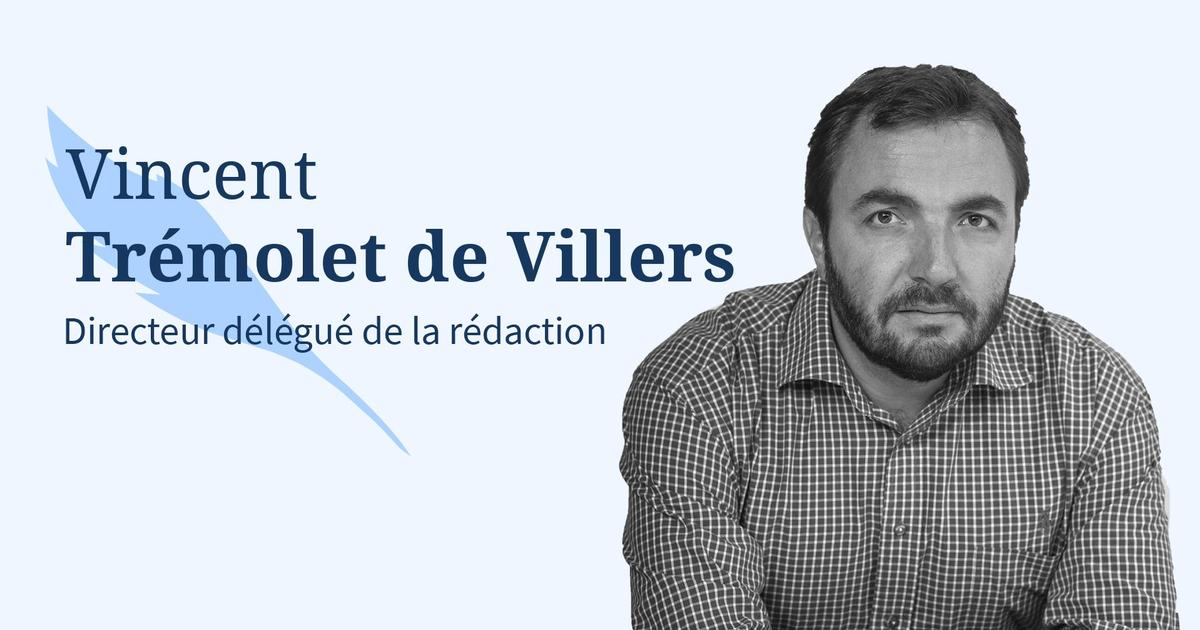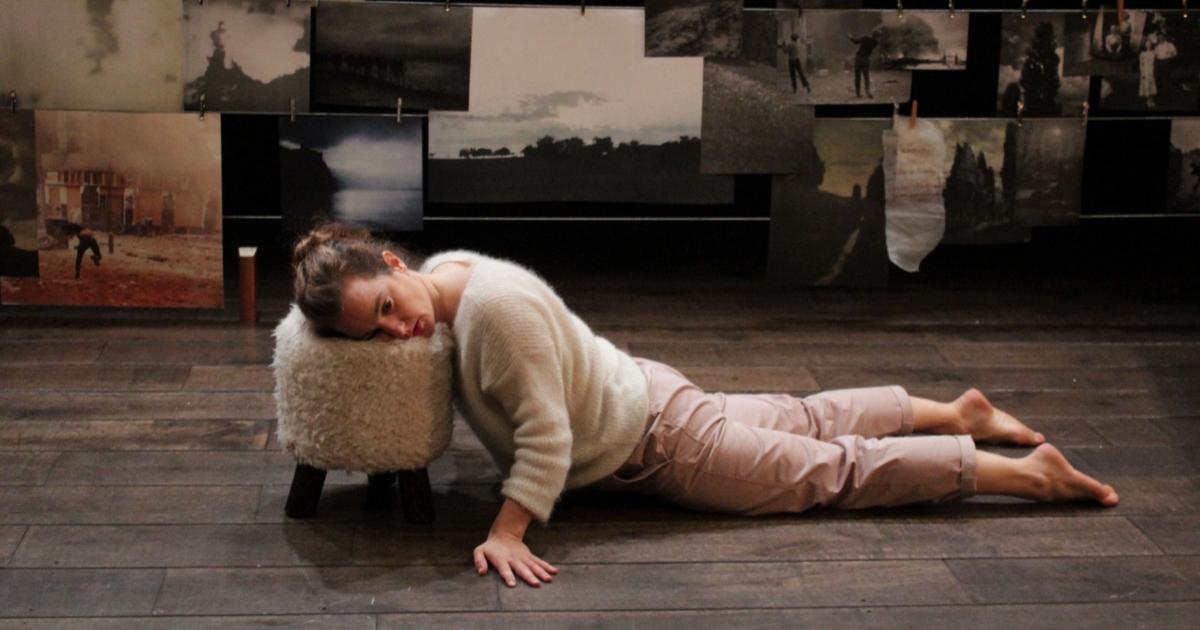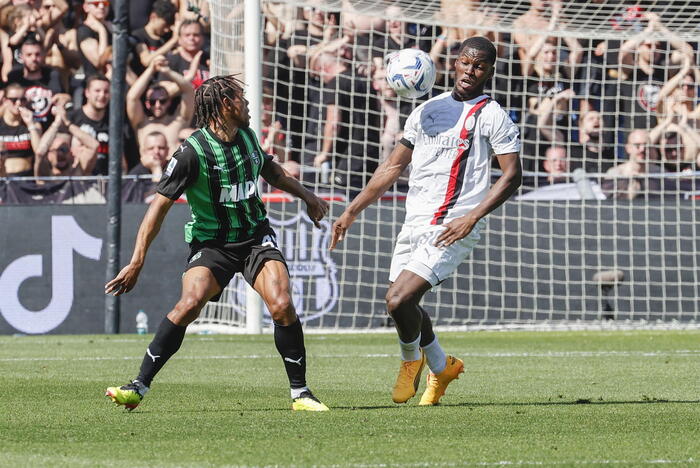Milan Kundera, in a portrait provided by his publisher in 2014.EFE
Milan Kundera lives in the center of Paris, in one of the neighborhoods of the city, and perhaps the world, with the highest concentration of journalists, editors and people linked to the world of letters.
At 92, his health has deteriorated, but not so long ago he was socializing.
He was seen on the street and in restaurants, and cultivated a wide circle of friends and acquaintances.
The author of
La broma
,
La unbearable lightness of being
and other novels and essays that are classics of contemporary literature (published by Tusquets in Spanish) had everything to be under the spotlight in the
Parisian
rive gauche
, where he has lived for decades with his inseparable Vera.
And yet it has managed for years and years to escape public exposure.
There are few recent photos of him.
He maintains a tight grip on his published and translated works.
His biography sums it up in two sentences: “Milan Kundera was born in Czechoslovakia.
In 1975, he settled in France ”.
The rest does not matter: the texts count.
He does not give interviews or attend events with cameras and photographers.
More information
The many languages of Kundera
Milan Kundera: "My language wants to be simple, precise, almost transparent"
He also did not attend the French Embassy in Prague on Thursday, when he was awarded the prestigious Franz Kafka Prize, which had previously been deserved by Philip Roth, Margaret Atwood, Peter Handke and Eduardo Mendoza, among others.
The award was received, on behalf of the writer, by the translator of his French work into Czech, Anna Kareninova.
A quartet performed works by Pavel Haas, the young Kundera's master of composition in his hometown, Brno, who died in Auschwitz in 1944. Haas was the father of his first wife, Olga Haas, "erased from the official novel," writes the French journalist Ariane Chemin in
À la recherche de Milan Kundera
(In Search of Milan Kundera), one of the recent books that delves into the life of an author who always considered his biography to be of no interest.
The ceremony couldn't be more Kunderian.
There was his idolized Kafka, “the least understood of all the great writers of the last century” who, as he wrote, “mixes the serious and the light, the comic and the sad, the sense and the nonsense”.
There was the absence of Kundera, one of the last living giants of 20th century letters, an elusive classic.
And there, too, his complex relationship with his native country — then Czechoslovakia, now the Czech Republic, in his novels Bohemia and Moravia — a somewhat more relaxed but not entirely appeased relationship.
Nostalgia permeates the last pages of Ariane Chemin's book, based on a series of reports published in
Le Monde
.
"In their spirit," he writes, "the Kundera are in Brno, in Moravia," even though they are still in Paris.
"The memories come back, maybe it's nostalgia, a natural movement of aging," says essayist Christian Salmon.
Before being the author of celebrated books like
Storytelling.
The art of fabricating stories and formatting minds
(Península publishing house), Salmon was Kundera's right-hand man at the legendary literature seminar held in the Eighties by the École des Hautes Etudes en Sciences Sociales in Paris, and is a good friend of the family.
"The memories come back, maybe it's nostalgia, a natural movement as we get older", says Christian Salmon
The moment for reconciliation could be propitious, after decades of disagreements. The communist regime banned his books, expelled him from the party and spied on him after the Prague Spring in 1968. Aided by their French intellectual friends, Milan and Vera went to France, first to Rennes, Brittany and then to the capital.
After the Velvet Revolution in 1989 and the fall of the communist bloc, things did not work out right away. Kundera, whose nationality had been taken away by the old regime, was already a citizen of France and had adopted French as a literary language. He lacked the resilient pedigree of the playwright and father of the new nation Vaclav Havel: he had not sought it out either, for, once in France, he felt uncomfortable with the label of dissident and devoted himself to the novel. He shunned the spotlight and the image of the media intellectual who thinks about everything without knowing anything. If he was a committed writer, he was with his art.
"Deep down, Kundera thinks that the novelist's art is antagonistic with lyricism, that is, with a certain way of showing himself, which today has become dominant among authors who are sold in the media or social networks", explains Salmon .
“He thinks that the work goes ahead of the author, because the author ends up reducing and simplifying the work.
It is not a position of solitary hermit, but of withdrawal from public life and, above all, from the media.
It is a kind of affirmation of a choice: the novelist must eclipse himself behind the work ”.
"Deep down, Kundera thinks that the novelist's art is antagonistic to lyricism"
Over time, the gestures between Kundera and the Czech Republic have multiplied.
In 2007, he won the national prize for literature.
In 2018, the Prime Minister, Andrej Babiš, visited him at his apartment in the 7th arrondissement of Paris and a few months later the ambassador restored his nationality.
The Kundera have donated their library and archives to the city of Brno.
The standardization, however, has not been completed.
The perception of Kundera in the Czech Republic and in other countries is not identical, according to Jan Novák, author of
Kundera: Český život a doba
(Kundera: His Czech Life and Times), a 900-page biography published in 2020. “Here people know their past.
Abroad he was able to rewrite his biography ”, says Novák.
"I think he's a great writer, but he's a troublesome character."
In the book's prologue, Novák doubts that Kundera's famous allergy to the biographical genre — and his insistence that what is important is the work, not the author — obeys “an aesthetic or philosophical postulate”.
He maintains that "he rather seems strictly defensive and calculated: Kundera does not like to review his life."
According to him, he hides something.
What?
The Stalinist past
"His Stalinist past," Novák replies.
“In the early 1950s he was a totally Stalinist poet.
He was a powerful literary official.
And he left Czechoslovakia with the blessing of the Government, with part of his library and in his car unlike the people expelled after the Russian invasion of 1968. In his early years in France, he behaved like a good Czechoslovak socialist citizen ”.
Novák addresses in the book the episode that always returns when Kundera's past in post-world war Czechoslovakia is discussed. In 2008, the magazine
Respekt
revealed, after investigating in the archives of the state security, a document that implied that, in 1950, the young Kundera denounced an opponent who ended up sentenced to 22 years in prison. Kundera broke her silence to deny the accusation.
All of this may have chilled the reconciliation. Ariane Chemin, who maintained frequent contacts with the writer's wife to prepare her reports and the book, explains by phone that a few years ago, the Kundera had the project of returning to their country, “but this story from the archives and the article of
Respekt
, and this prevented the return ”. And this is how Milan and Vera are still in Paris, but with their minds elsewhere, their old homeland. "They are nowhere," says Chemin. "It is the tragic side of this story."

/cloudfront-eu-central-1.images.arcpublishing.com/prisa/SOWOW7NGSRBOFP2AMZ3HZPFRZU.jpg)



/cloudfront-eu-central-1.images.arcpublishing.com/prisa/ZQJTEK5BRJDBNBQDN4FYUJ4SSM.jpg)


